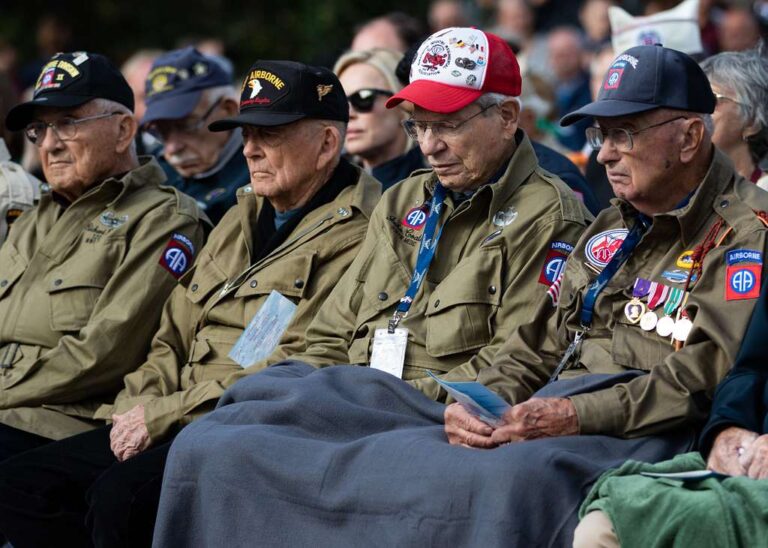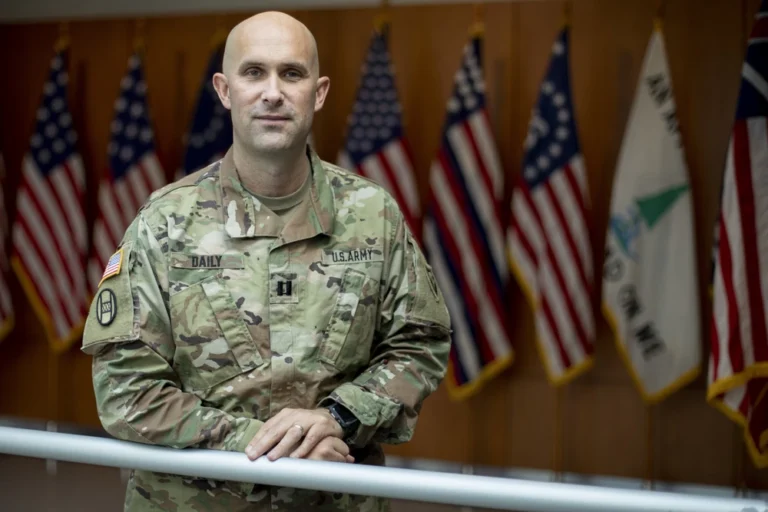Why American Businesses Should be Military Ready
Evolving from appreciation to true integration: we need to understand the difference between being “military friendly” and “military ready”, and why it matters.

This article by Jonathan Fermin-Robbins, former Interim Executive Director of Military Connected and decorated US Army veteran, was originally published in the opinion section of Yahoo News.
Drawing from my own experience transitioning out of the Army, and from being a military spouse, I am aware of the complex challenges that members of the military-connected community face seeking employment.
Overcoming the challenge of translating military skills into civilian terms and adapting to a new work culture are formidable hurdles. Through novel programs like DOD SkillBridge, which connects transitioning service members with industry partners, and working with organizations like Hiring our Heroes, or Hire Heroes USA, America has made significant strides when it comes to veteran unemployment. This should be celebrated.
But this solution has revealed another challenge: finding meaningful employment that truly reflects veterans’ skills and abilities and paves the way for long-lasting careers.
American businesses have a tremendous opportunity to not only address the issue of underemployment among our nation’s heroes, but also benefit from their invaluable skills and experiences. By being military ready, businesses can tap into this exceptional talent pool and foster long-lasting careers.

The cost of attrition and underemployment
Research shows that underemployment disproportionately affects veterans. They are 70% more likely to step back in seniority in their first civilian jobs when compared to the roles they held in the military and are nearly 16% more likely to be underemployed than their civilian counterparts; 42% of veteran talent leave their first civilian job in one year; and 80% leave in two years, which is 10% higher than their civilian counterparts.
The cost of replacing an employee can range from one-half to two times the employee’s salary. However, research also found that 70% of the reasons for employee turnover are preventable.
Finally, a recent survey of more than 5,000 veterans and service members by Indeed and Hiring Our Heroes found that “even organizations that consider themselves ‘military-ready’ may still have work to do,” with 44% of respondents choosing not to move forward as candidates for a job because the employer’s claims of being military friendly did not meet their expectations.
The challenge becomes more exacerbated when hiring managers are eager to tackle the problem but are unsure of where to begin. When hiring managers seek assistance, they are often overwhelmed by a flood of well-intentioned advice or struggle to find tailored support from other nonprofit organizations.
These gaps open an opportunity for new solutions.
It’s time to be military ready, not just military friendly
What’s needed is targeted support for hiring managers. What’s necessary is a national focus on being military ready versus military friendly. “Military ready” may be defined as the ongoing transformation of a business to successfully attract, support, and retain diverse, military-connected talent.
Business leaders can focus on three areas of opportunities to become military ready:
1. Establish strategic intent: Executive leaders must prioritize programs that not only attract veteran talent but support their existing military-connected employees. This kind of approach mirrors the Department of Veterans Affairs’ Principles of Excellence for institutions of higher learning in which the leadership mandates broad-reaching organizational changes to ensure coverage across all areas of the business.

2. Apply customized solutions: Employers must recognize that there is no cookie-cutter solution to an effective military inclusivity program. What works at other organizations may not fit within the established culture within their own business. To do this, consider establishing a coalition of support from military-connected employees and advocates that assess the state of the inclusivity program and are empowered to affect change.
3. Seek out partnerships: Businesses should actively seek out and participate in programs or partnerships with organizations focused on supporting the military-connected community. By partnering with such organizations, businesses can gain access to valuable resources, support and guidance on how to effectively attract, support and retain military-connected employees.
If business leaders commit to this level of readiness and recognize the importance of becoming military-ready and creating a more inclusive and diverse workforce, we can make a difference for our nation’s heroes and our businesses.

Jonathan Fermin-Robbins is the former Interim Executive Director of MilitaryConnected.org, a nonprofit organization that empowers veterans and their families through employer education, talent engagement, and data-driven research.
Before helping launch MilitaryConnected.org, Jonathan served more than 10 years in the U.S. Army, worked at the Department of Defense, and was Chief of Staff at Aliro, Inc.
Jonathan lives with his husband in Denver, Colorado.
Business leaders and prospective partners who wish to learn more about supporting the military-connected community may contact MilitaryConnected.org at info@militaryconnected.org.
About MilitaryConnected.org:
MilitaryConnected.org is committed to improving the lives of America’s military-connected community through employer education, talent engagement, and data-driven research. It seeks to ensure every member of America’s military-connected community has equal access to the resources necessary to unlock their full potential. Be more than military-friendly, become military-ready at militaryconnected.org.
